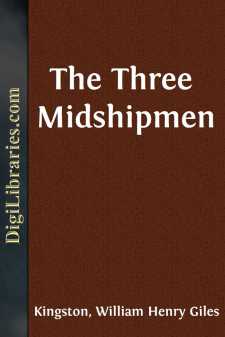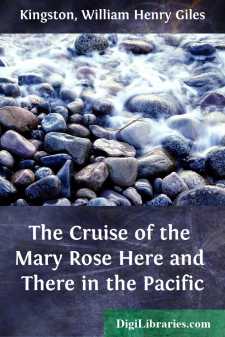Categories
- Antiques & Collectibles 13
- Architecture 36
- Art 48
- Bibles 22
- Biography & Autobiography 813
- Body, Mind & Spirit 142
- Business & Economics 28
- Children's Books 15
- Children's Fiction 12
- Computers 4
- Cooking 94
- Crafts & Hobbies 4
- Drama 346
- Education 46
- Family & Relationships 57
- Fiction 11828
- Games 19
- Gardening 17
- Health & Fitness 34
- History 1377
- House & Home 1
- Humor 147
- Juvenile Fiction 1873
- Juvenile Nonfiction 202
- Language Arts & Disciplines 88
- Law 16
- Literary Collections 686
- Literary Criticism 179
- Mathematics 13
- Medical 41
- Music 40
- Nature 179
- Non-Classifiable 1768
- Performing Arts 7
- Periodicals 1453
- Philosophy 64
- Photography 2
- Poetry 896
- Political Science 203
- Psychology 42
- Reference 154
- Religion 513
- Science 126
- Self-Help 84
- Social Science 81
- Sports & Recreation 34
- Study Aids 3
- Technology & Engineering 59
- Transportation 23
- Travel 463
- True Crime 29
The Loss of the Royal George
Categories:
Description:
Excerpt
Chapter One.
My father, Richard Truscott, was boatswain of the Royal George, one of the finest ships in the navy. I lived with mother and several brothers and sisters at Gosport.
Father one day said to me, “Ben, you shall come with me, and we’ll make a sailor of you. Maybe you’ll some day walk the quarter-deck as an officer.”
I did not want to go to sea, and I did not care about being an officer; indeed I had never thought about the matter, but I had no choice in it. I was but a very little chap, and liked playing at marbles, or “chuck penny,” in our backyard, better than anything else.
“He is too small yet to be a sailor,” said mother.
“He is big enough to be a powder-monkey,” observed my father; and as he was not a man who chose to be contradicted, he the next day took me aboard his ship, then fitting out in Portsmouth harbour, to carry the flag of Admiral Sir Edward Hawke. She was indeed a proud ship, with the tautest masts and the squarest yards of any ship in the British navy. She carried one hundred and four guns, all of brass—forty-two pounders on the lower-deck; thirty-two on the middle deck; and twenty-four pounders on the quarter-deck, forecastle, poop, and main-deck. She had huge lanterns at her poop, into which four or five of us boys could stow ourselves away; and from the time she was first launched, in 1756, the flag of some great admiral always floated from the masthead. When my father left me, to attend to his duty, I thought I should have been lost in the big ship, with deck above deck, and guns all alike one another on either side; and hundreds of men bawling and shouting, and rushing about here and there and everywhere. Sitting down on a chest, outside his cabin,—my legs were not long enough to reach the deck,—I had a good cry; and a number of boys, some of them not much bigger than myself, came and had a look at me, but they did not jeer, or play me any tricks, for they had found out that I was the bo’sun’s son, and that they had better not. I soon, however, recovered, and learned to find my way, not only from one deck to another, but up aloft; and before many days were over, had been up to the main-truck; though when my father heard of it, for he was below at the time, he told me not to go again till I was bigger. As I was continually, from ignorance, getting into scrapes, and he could not keep an eye on me himself, he gave me in charge to Jerry Dix, the one-legged fiddler and cook’s mate. Jerry could take very good care of me, but was less able to take care of himself when he had got his grog aboard, and more than once when this happened I had to watch over him. This made us firm friends, and I am very sure that he had a sincere affection for me.
England was now engaged in what was known as the Seven Years’ War, which began in 1756, and had been going on for three years, the ships of England fighting those of France whenever they could find them, and generally giving them a drubbing. Our ship, which carried, as I have said, the flag of Admiral Sir Edward Hawke, had, with several other line-of-battle ships, been for some time watching the French fleet, under Admiral Conflans, shut up in Brest harbour, when, a heavy gale coming on, we were obliged to put into Torbay for shelter....












